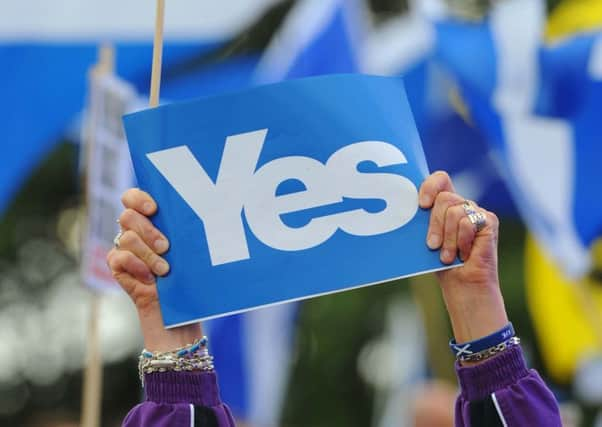Digital currency may have solved Scottish independence issue


Now a possible solution is being proposed by economists who believe Scotland could become the first country in the world to pioneer its own digital currency.
The ScotPound could be up an running in one and three years and would operate alongside, and complement, sterling, according to a report published today by the New Economic Foundation (NEF). “Scotland does not have to give up sterling in order to introduce its domestic digital currency,” it states.
Advertisement
Hide AdAdvertisement
Hide AdEveryone on Scotland’s electoral register would have an account opened with the new financial institution, “BancaAlba”, which would also operate the free payment system ScotPay.
Duncan McCann, a researcher in economy and finance at NEF, said: “Last year’s independence referendum kick-started an important debate on Scotland’s relationship with sterling.
“But in fact, even under devolution, Holyrood has the power to transform Scotland’s monetary system. Scotland is in a unique position to take full advantage of current trends in digital financial innovation. A new currency and payment system like ScotPound would operate alongside pounds sterling, supporting small and medium businesses and putting money in the pockets of those currently excluded by the financial sector.”
Alex Salmond faced questions over his assertion that Scotland would continue to share the UK pound after a Yes vote – even after a currency union was ruled out by George Osborne and the Labour opposition. It emerged this week that most of the Yes Scotland board felt there should have been a Plan B. Jim Sillars, the former SNP deputy leader, described the currency issue as a gift to the No camp.
Under the ScotPound plan, each eligible citizen would receive a dividend of £250 on turning 16 or 18. Supporters say it would operate like a normal electronic bank account – without the hard cash.
It would be up to ministers to persuade shops like Tesco and Asda to accept the currency. Payments could be on mobile phones through texts, apps or even telephone voice recognition.
Supporters say the ScotPay system would cut out costly transaction charges associated with current systems like Visa or Mastercard and add around £15 million to the money supply each year.
The operating costs, including £3m initially, would be covered by the Scottish Government, but it would not add to the country’s debt burden.
Advertisement
Hide AdAdvertisement
Hide AdProfessor Nigel Dodd, of the London School of Economics, said: “This report is a timely and welcome intervention in debates about our monetary system, and specifically about the merits and efficacy of conventional quantitative easing.”
“Given that the currency question played a major role in the Scottish referendum debate last year, I have no doubt that the proposals for a ScotPound will inform future discussions in Scotland. NEF’s proposals are extremely clear and convincing.”